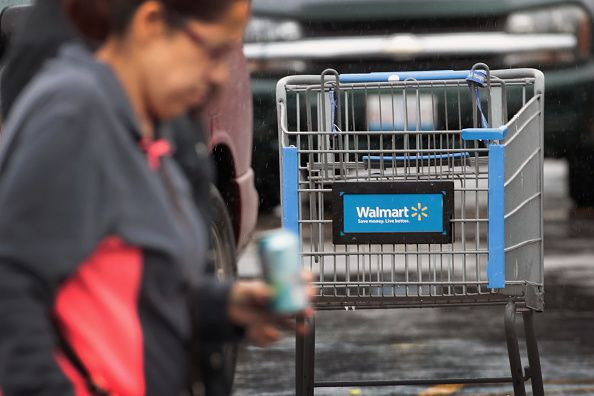Walmart Wants To Deliver Groceries Right To Your Fridge

What is it with companies wanting access to your personal space? No, not some social media platform playing fast and loose with your private data, but retailers wanting to put delivery people inside your home.
This article originally appeared in the Motley Fool.
First Amazon.com (NASDAQ: AMZN) wanted access to your car and your house to deliver packages, now Walmart (NYSE:WMT) wants its own set of house keys so it can deliver your groceries and put them away for you, "right into the fridge," as Marc Lore, president and CEO of Walmart.com, put it in an interview with Jim Cramer.
The future of grocery shopping
Lore, the founder of Jet.com, which Walmart acquired in 2016, recently said on Mad Money that the future of food delivery could be as convenient as "delivery right into the fridge."
He went so far as to suggest there will come a time when internet-connected devices actually handle the entire process for you and the consumer doesn't even have to order anything; your refrigerator is just automatically restocked.
"How about just being able to keep you in stock on everything you need and not even have to think about it? That's the future," he told Mad Money host Jim Cramer.
Although the idea behind the effort is to create a fast, efficient, and convenient delivery option, consumers are still leery about giving a stranger free range in their homes without someone being there. Morning Consult found that 68% of people were uncomfortable with letting delivery drivers into their homes, with 15% saying they were "somewhat uncomfortable" and 53% saying they were "very uncomfortable" about it. And while millennials were twice as likely to be OK with it as baby boomers, more than half of even the 18-to-29-year old demographic was still uncomfortable with the idea.
Trading some security for convenience
Certainly there is some rationale to letting delivery people inside your car or home when you're not there. Being able to thwart porch pirates is a major concern and putting a package in the trunk of a car while the recipient is at work or bringing the groceries into the home would ensure thieves couldn't steal the goods.
Amazon.com is probably further along on this idea than anyone. Using a special smart lock set and an Amazon security camera, the Amazon Key system allows packages to be placed inside your home. Using a smartphone, you can watch the door opened, your package placed inside, and the door closed and locked again.
Walmart is testing a similar system in Silicon Valley in partnership with smart lock maker August Home where a Deliv driver puts away your order while you watch him through a smartphone app connected to your home's security cameras. The person gets in via a one-time access code. While the access code and surveillance could build trust, Walmart has perhaps a higher hurdle to get over than Amazon.
Although it always earns high marks for low prices, Walmart's reputation typically ranks near the bottom for nearly everything else, with shoppers complaining about store cleanliness, out-of-stock inventory, and a lack of employee help. It's true that's based on a customer's in-store experience, but consumers may still balk because of it when it comes to an in-home delivery.
Access denied
Such a service is not yet available beyond the testing Walmart is conducting, but even with one-time access codes and a cameras letting you watch the driver's every move in the house, it doesn't seem be a service that's as much in demand as these companies want.
Convenience is one thing, putting strangers into our living rooms and kitchens is quite another. Retailers would do better coming up with alternatives such as more locker locations and alternative pick-up spots instead of devising new ways to get through the door.
John Mackey, CEO of Whole Foods Market, an Amazon subsidiary, is a member of The Motley Fool's board of directors. Rich Duprey has no position in any of the stocks mentioned. The Motley Fool owns shares of and recommends Amazon. The Motley Fool has a disclosure policy.





















